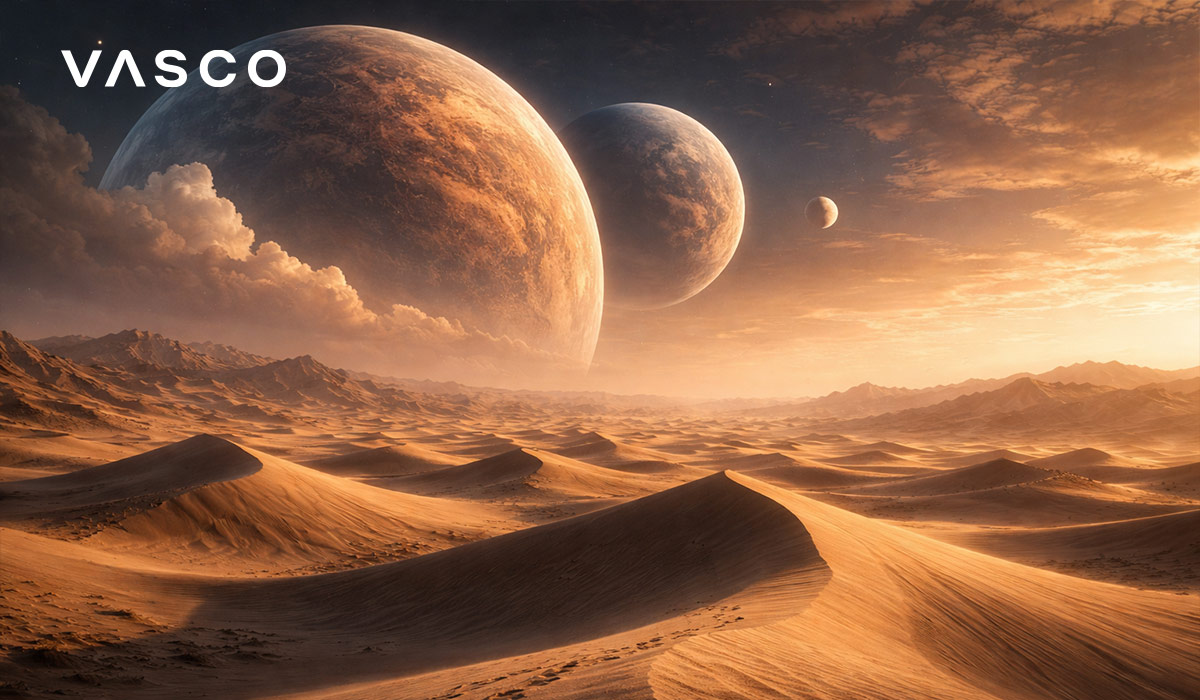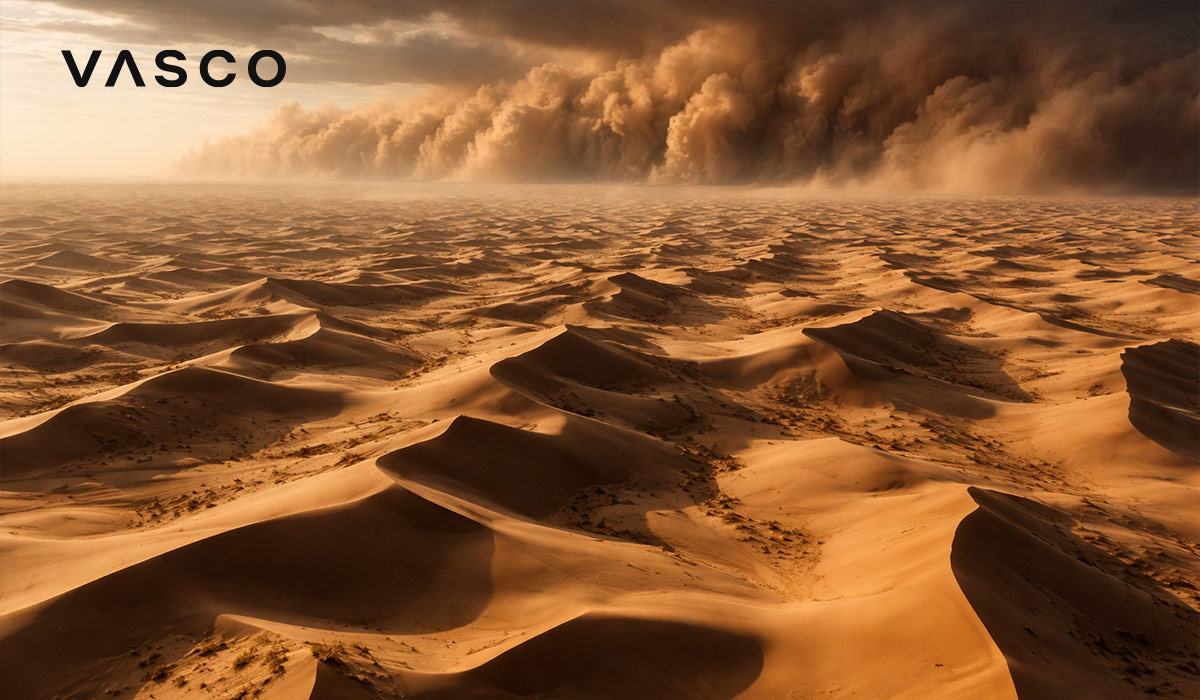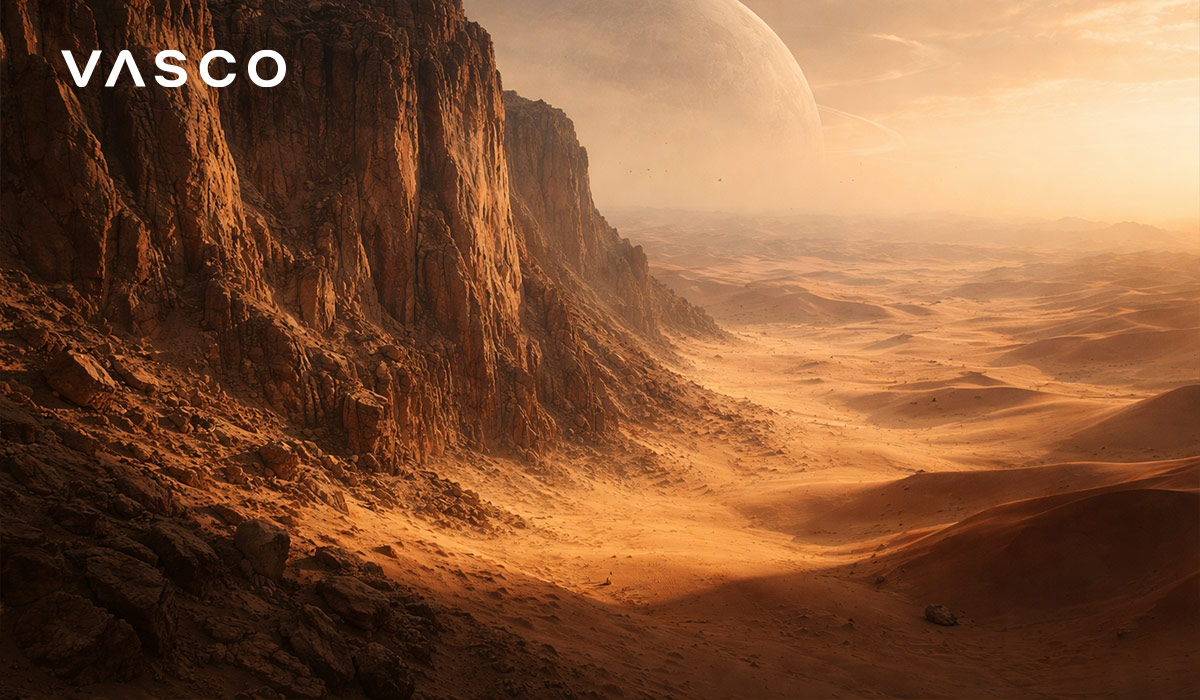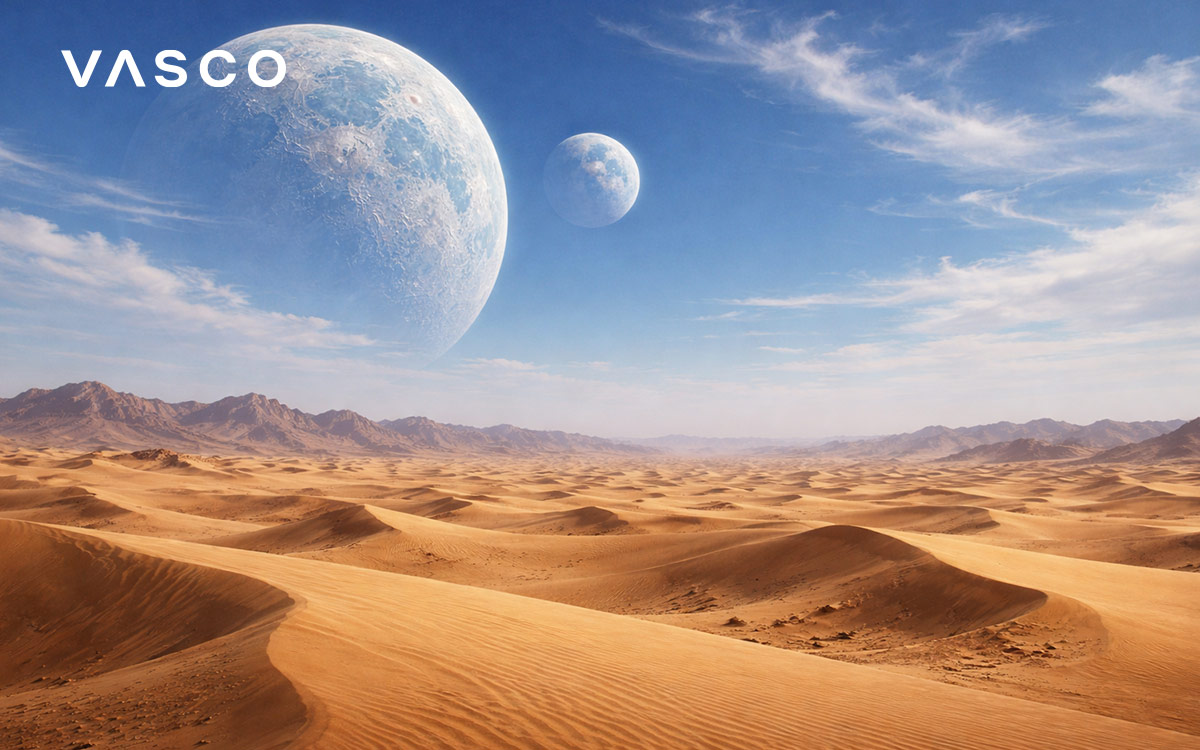“Dune,” the epic science fiction novel by Frank Herbert, has captivated readers and viewers for decades. Its richly imagined universe, intricate political landscapes, and diverse cultures are brought to life not only through the narrative but also through the languages spoken by its characters.
Probably inspired by the turmoil of the late 20th century, with the Cold War included, “Dune” tells a dystopian story of the future, where various great houses control planetary fiefs in an interstellar society.
In this blog post, we will explore the fascinating linguistic world of “Dune” and shed light on the various languages used throughout the series, including those in the second Dune movie.
So, if you’re wondering “what language do they speak in Dune“, “what language is spoken in Dune“, or “what language do the Fremen speak“, you will find your answers here!
In this article, we’ll look into the following topics:
- The Galach Language: A Universal Tongue
- Fremen Language: The Voice of the Desert
- Are there any ancient languages in “Dune” or “Dune 2“?
- What Language Do They Speak in Dune 2?
- Is There Arabic in Dune?
- The Diversity of Dune Languages
- What language do the Sardaukar speak?
- Is Dr. Yueh Speaking Mandarin?
- What language do the Atreides speak?
- The Dune Language Translator
- Is Dune Based on Islam?
Let’s start!
FAQ:
What language is being spoken in Dune?
What is the secret language in Dune?
Is Galach a real language?
What language is Lisan al Gaib?
What language did the Fremen speak?
Is the language spoken by Fremen based on Arabic?
Table of Contents:
The Galach Language: A Universal Tongue
When it comes to Dune languages, the most widely spoken one is Galach. Often referred to as the “common tongue” or “trade language,” Galach serves as a lingua franca or an official language for interstellar communication.
This Dune language originated mainly from English and various Slavic tongues and, as it usually happens, evolved and changed over the millennia.
It allows individuals from diverse planets and cultures to interact and trade. The High Galactic Alphabet, also known as the Galach script, is used to write this language.
The High Galactic Alphabet plays a crucial role in the transmission of knowledge and information across the universe.

What language do the house Atreides speak?
In universe of “Dune”, House Atreides, one of the central great families in the story, primarily speaks Galach. However, they also have their own language, reflective of their rich heritage and traditions.
The Fremen Language: The Voice of the Desert
The Fremen are a desert-dwelling people native to the desert planet Arrakis, also known as “Dune”.
And what language do the Fremen speak?
While Galach may be the common language, the Fremen language is also one of the prominent tongues in this fascinating universe.
This Dune language, deeply rooted in their desert culture, holds significant importance in the storyline, reflecting their struggles, beliefs, and way of life.
It descends from Arabic, but it became simpler over the years. We’ll look into the Arabic features of this language later in the article!
The Hunting Language
When talking about the Fremen language, it is also worth to mention the hunting language. It is a non-vocal system of hand signals and gestures designed to be silent and discreet.
Fremen warriors use these signals to communicate with each other during hunts or battles, without alerting potential prey or enemies to their presence.
The ability to communicate silently is crucial in the hostile and harsh environment of Arrakis, where even the slightest noise can have severe consequences.
Is Dune Based on Islam?
“Dune” has often been interpreted as having parallels with various real-world cultures and religions. Some readers and viewers have drawn connections between the Fremen culture and Islamic influences, citing similarities in language, customs, and social structure.
However, Frank Herbert did not intend “Dune” to be a direct allegory of any particular religion or culture. Instead, he used a wide range of influences to construct a unique and multidimensional world.

The Mysterious Languages of the Sardaukar
This Dune languages come from two powerful factions in the “Dune” universe.
The Sardaukar, the fierce and elite soldiers of the Padishah Emperor, speak a secret language known only to their ranks. This tongue can be briefly heard in the Dune movie from 2021.
What Language Do They Speak in Dune 2?
With the release of the second Dune movie, fans were introduced to new cultures and characters, each bringing their languages to the big screen.
While Galach remains the universal language, the movie further explores other linguistic elements, adding depth to the already immersive world of “Dune”.
But are there any other Dune languages?
Are there any ancient languages in “Dune” or “Dune 2”?
There are references to ancient languages that add depth and historical context to the story. One notable ancient language mentioned in the series is “Old Earth,” which is believed to be the ancestor of several modern languages, including Galach.
In the “Dune” novels, characters occasionally reference ancient history as well as Old Earth words and proverbs, showcasing the language’s enduring influence even in the distant future. The use of Old Earth expressions also serves to highlight the continuity of human culture and history across time and space.
Additionally, the Bene Gesserit, a powerful and secretive sisterhood in the “Dune” series, possess a vast store of ancient knowledge, including languages. They are known to have preserved and studied various ancient languages and texts, which contributes to their enigmatic aura and mystique in the universe.
Is There Arabic in Dune?
One of the most intriguing aspects of “Dune” is its cultural inspiration, which includes elements from various real-world cultures.
While the Fremen language draws inspiration from Arabic, it is not a direct representation of the Arabic language. Frank Herbert’s world-building is a unique blend of influences, creating a vibrant and distinct linguistic landscape with original words and phrases.
An example of influences drawn from Arabic words in the Fremen language may be the expression “Sietch”. It is used to describe the Fremen’s underground communities or settlements in the deep desert. It resembles the Arabic word “سيتش” (pronounced “saytch”), meaning “to camp” or “to pitch a tent.”
Dr. Yueh Speaking Mandarin: Fact or Fiction?
There is a popular myth among Dune enthusiasts that Dr. Wellington Yueh, a prominent character in the series, speaks Mandarin. However, canonical sources do not support this claim.
Unfortunately, there is no Dune language mentioned in the books that would be reserved for Dr Yueh. It leaves room for interpretation and speculation among fans.
The Dune Language Translator
Given the significance of languages in “Dune,” many fans have yearned for a functional Dune language translator.
While some online tools claim to offer translation services, it’s essential to approach them with caution, as these translations might not be accurate or faithful to the source material.
The intricate nuances of languages in “Dune” require a deeper understanding and cultural context to be accurately translated. It’s better to rely on well-informed sources, such as Frank Herbert books themselves.
If you’re a big fan of Dune (or just became, thanks to our article) and want to discuss this marvelous work of art with other people, don’t limit yourself only to your language.
Contrary to Dune tongues, translating real-world languages gets way easier when you use a voice translator from Vasco. You can chat in different languages, translate images to understand foreign alphabet, use text to speech translation, and more.

Conclusion
In this article, we answered the following question: “What language do they speak in Dune?”.
We also learned more about these issues: “what language do the Fermen speak”, “What language do the Atreides speak?” and “Is the language in Dune Arabic?”
The Diversity of Dune Languages
Herbert’s genius lies in his ability to craft a universe where cultures, languages, and identities are diverse and multifaceted.
The characters in “Dune” come from different backgrounds and planets, each speaking their own languages, further emphasizing the vastness and complexity of the “Dune” universe.
While Galach serves as the common tongue for interstellar communication, each planet and faction brings its own language, adding depth and richness to the narrative.
As “Dune 2” expands the universe even further, fans can anticipate a more intricate tapestry of languages and cultures, weaving together a masterful and immersive experience.
Whether it’s the enigmatic Fremen language, the secretive tongue of the Sardaukar, or the noble Atreides’ heritage, “Dune” reminds us of the power and beauty of language in shaping worlds and telling captivating stories.
As we await more adaptations and explore the ever-expanding universe of “Dune,” let us cherish the linguistic brilliance that adds another layer of brilliance to this iconic sci-fi masterpiece.
In the nutshell:
“Dune,” the epic science fiction novel by Frank Herbert, features a diverse array of languages that enrich its intricately imagined universe. The most widely spoken language is Galach, a universal tongue derived from English and Slavic languages, serving as the common language for interstellar communication. The Fremen, native to the desert planet Arrakis, have their own language with roots in Arabic, reflecting their culture and struggles. While Arabic influences are present, “Dune” is not based on Islam, as the author drew inspiration from various real-world cultures and religions. Additionally, the secretive Sardaukar soldiers have their own mysterious language, and there are references to ancient languages like “Old Earth.” The complexity of languages in “Dune” contributes to its immersive storytelling, making it a beloved classic for readers and viewers alike.











